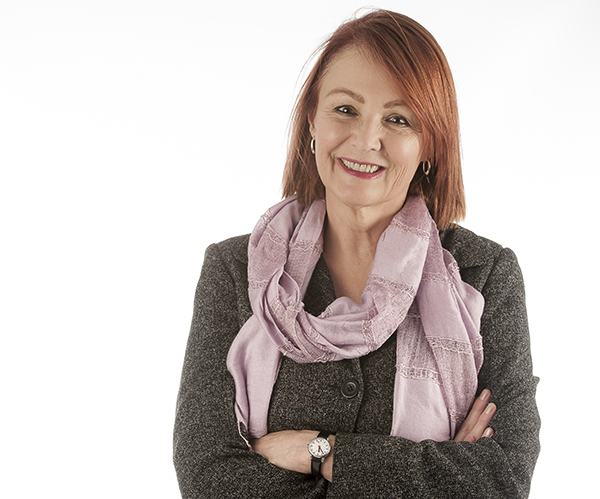Latest News Archive
Please select Category, Year, and then Month to display items
22 September 2021
|
Story Michelle Nöthling
|
Photo Supplied
 Annemarie Le Roux.
Annemarie Le Roux.
“I love working with children.” This is one of the first things Annemarie le Roux mentions when asked to describe herself. This love for children propelled Annemarie into the field of education and she graduated in 2006 with a BEd in Foundation Phase at the UFS. Annemarie immediately immersed herself in the Deaf community, enriching the lives of children at the Thiboloha School for the Deaf in Qwaqwa and the De la Bat School for the Deaf in Worcester.
The academic world enticed Annemarie back to the University of the Free State (UFS) and she was appointed as a junior lecturer in the Department of South African Sign Language (SASL) and Deaf Studies in 2013. Going from strength to strength, Annemarie completed her master’s degree in SASL in 2019, and published an
article earlier this year that she co-wrote with Marga Stander. In this article, they found that SASL “has become an increasingly popular language that hearing university students want to learn as a second language” and subsequently explored different teaching methods used for this emerging group of interested students.
Although now firmly established in academia, Annemarie is still committed to the practical application of SASL. “I am closely involved in student and community engagement through the
SIGNALS Sign Language student association that helps empower the Deaf community and South African Sign Language.” She also interprets for the Deaf community whenever she gets an opportunity, as well as for Deaf students in class and meetings.
On the importance of Sign Language and the recognition of the Deaf community in South Africa, Annemarie believes it will open greater opportunities for development. “More people will be able to learn SASL, and it might even become a subject in school for hearing children.”
Research chair into Higher Education gets boost for five more years
2017-11-21

Prof Melanie Walker, Director of the Centre for Research on
Higher Education and Development (CRHED).
Photo: Supplied
The research Chair in Higher Education and Human Development within the Centre for Research on Higher Education and Development (CRHED) at the University of the Free State has secured funding for another five years. It follows a favourable evaluation by the South African Research Chairs Initiative (SARChI) of the research project at the UFS.
The Director of the Centre, Prof Melanie Walker, says she is delighted by the recognition of the Chair's hard work and significant productivity. “This new round of funding secures the centre and its activities for the next five years.”
Under the auspices of the Chair, research is conducted on higher education, inequalities and social justice, and how or if universities foster the human capabilities and aspirations of students. In essence, the research studies whether higher education makes a difference to the lives of students, their families and communities. Prof Walker says the Chair's projects look at issues of access, participation and transitions into work, as well as gender, race and social class. The research uses quantitative and qualitative methods and includes a strand of participatory research projects with students.
Prof Walker says through the Chair research project, and the Centre, researchers have developed extensive international links and produced international quality research and publications. “We foster high-quality PhD graduates as a new generation of social science academics.” The Chair has in the first five years produced 10 PhDs and four master’s students.
The project in the next five years will continue with its focus on higher education and human development research. Prof Walker says all the research efforts seek to contribute to more justice in society and universities and to contribute to debates, policy and practices in higher education and a scholarly knowledge base.
The Research Chairs Initiative aims to improve the research capacity at public universities to produce high-quality postgraduate students, research and innovative outputs. The assessors looked at features such as the number of students the research entity had trained and how many publications the research team had produced.